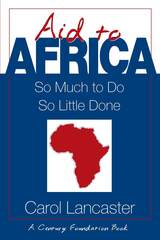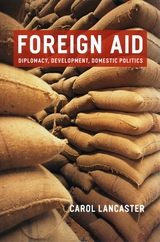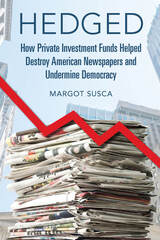
This balanced but tough-minded analysis does not reject the potential usefulness of foreign aid but does offer recommendations for fundamental changes in how governments and multilateral aid agencies can operate more effectively.

A twentieth-century innovation, foreign aid has become a familiar and even expected element in international relations. But scholars and government officials continue to debate why countries provide it: some claim that it is primarily a tool of diplomacy, some argue that it is largely intended to support development in poor countries, and still others point out its myriad newer uses. Carol Lancaster effectively puts this dispute to rest here by providing the most comprehensive answer yet to the question of why governments give foreign aid. She argues that because of domestic politics in aid-giving countries, it has always been—and will continue to be—used to achieve a mixture of different goals.
Drawing on her expertise in both comparative politics and international relations and on her experience as a former public official, Lancaster provides five in-depth case studies—the United States, Japan, France, Germany, and Denmark—that demonstrate how domestic politics and international pressures combine to shape how and why donor governments give aid. In doing so, she explores the impact on foreign aid of political institutions, interest groups, and the ways governments organize their giving. Her findings provide essential insight for scholars of international relations and comparative politics, as well as anyone involved with foreign aid or foreign policy.

This deeply felt memoir is a love letter to Washington, DC. Carol Lancaster, a third-generation Washingtonian who knew the city like few others, takes readers on a tour of the nation’s capital from its swamp-infested beginnings to the present day, with an insider’s view of the gritty politics, environment, society, culture, and larger-than-life heroes that characterize her beloved hometown. The former dean of Georgetown University’s School of Foreign Service, a friend of presidents and dignitaries all over the globe, Lancaster colorfully describes the city’s three near-death experiences and the many triumphs and tribulations that emerged as the city took shape. Along the way she provides brief biographies of three of the most influential figures in the city’s history: urban designer Pierre Charles L’Enfant, whose vision for the city was realized only after his death; civic leader “Boss” Shepherd, whose strong-arm tactics cleaned up the downtown area and helped create the walking mall we know today; and controversial mayor Marion Barry, whose rise and fall and resurrection underscored the contemporary challenges of home rule.
Teeming with informative anecdotes and two dozen illustrations of landmarks and key characters, Lancaster’s memoir is a personal and passionate paean to the most powerful city in the world—from one of its most illustrious native daughters.
READERS
Browse our collection.
PUBLISHERS
See BiblioVault's publisher services.
STUDENT SERVICES
Files for college accessibility offices.
UChicago Accessibility Resources
home | accessibility | search | about | contact us
BiblioVault ® 2001 - 2024
The University of Chicago Press









